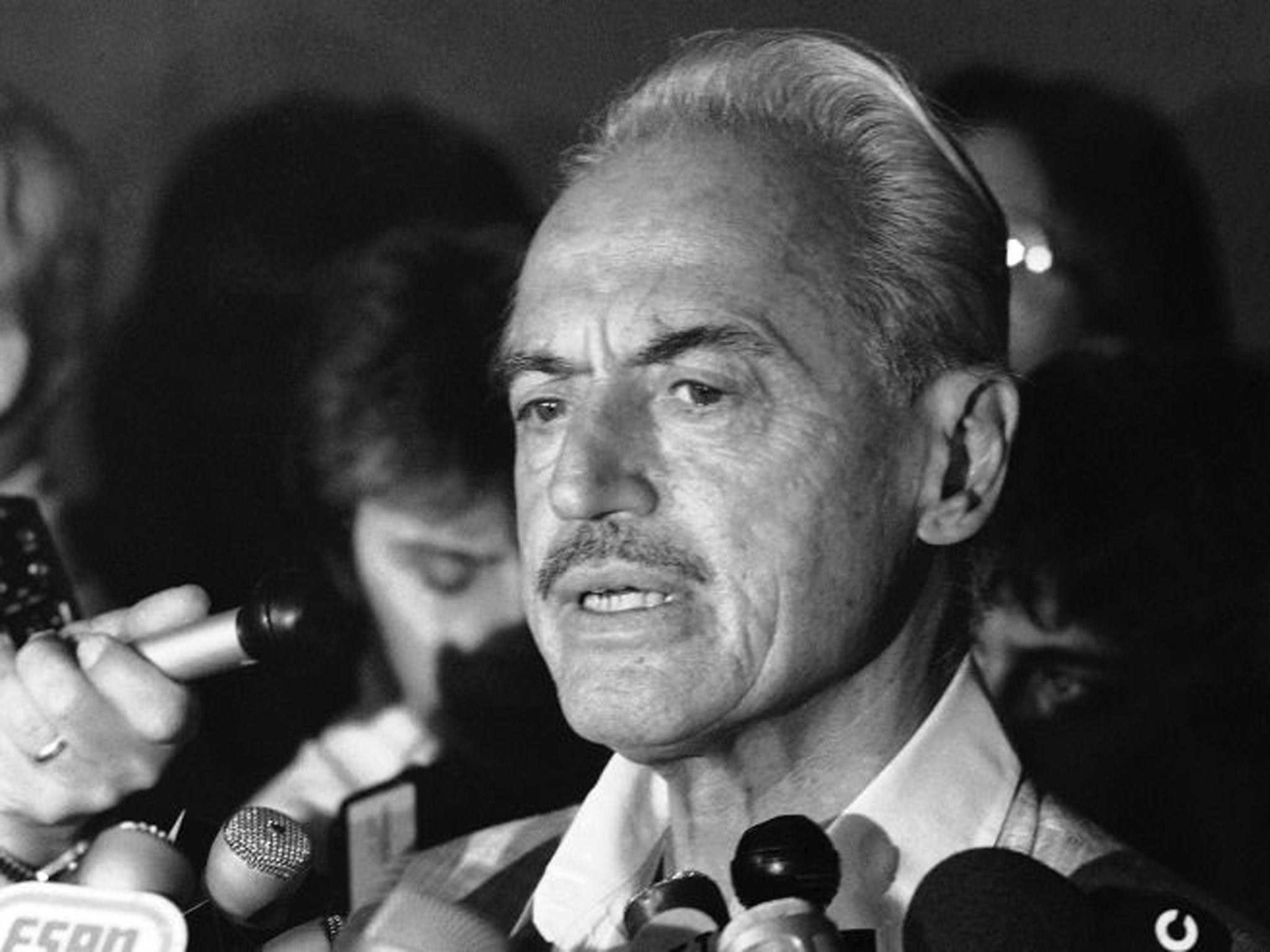Marvin Miller: Sports executive who pioneered the concept of free agency

Your support helps us to tell the story
From reproductive rights to climate change to Big Tech, The Independent is on the ground when the story is developing. Whether it's investigating the financials of Elon Musk's pro-Trump PAC or producing our latest documentary, 'The A Word', which shines a light on the American women fighting for reproductive rights, we know how important it is to parse out the facts from the messaging.
At such a critical moment in US history, we need reporters on the ground. Your donation allows us to keep sending journalists to speak to both sides of the story.
The Independent is trusted by Americans across the entire political spectrum. And unlike many other quality news outlets, we choose not to lock Americans out of our reporting and analysis with paywalls. We believe quality journalism should be available to everyone, paid for by those who can afford it.
Your support makes all the difference.Marvin Miller was the founding executive director of the Major League Baseball Players Association who led a revolution in sports by expanding the concept of free agency, which made many leading athletes multi-millionaires. "I loved baseball, and I loved a good fight, and, in my mind, ballplayers were among the most exploited workers in America" he wrote in his memoir, A Whole Different Ball Game.
When he was approached to lead the players' union in 1965, their primary goal was to increase their pension fund. He had been the leading labour negotiator for United Steelworkers and had served on presidentially appointed labour-management panels. Quiet and urbane, with a matinee-idol moustache, he did not conform to the stereotypical image of a hard-knuckled union organiser.
When he took over, the union had $5,400 in its coffers and no staff. But he forged one of the unlikeliest and strongest unions in the country, battling an entrenched group of wealthy team owners. He helped establish several landmark advances, notably free agency and salary arbitration, which gave players a greater voice in determining their salaries and guiding baseball's future. He organised four labour stoppages, including a mid-season strike in 1981 that halted the game for two months and alienated many fans sympathetic to the players' cause.
"I think he's the most important baseball figure of the last 50 years," former Baseball Commissioner Fay Vincent said. "He changed not just the sport but the business of the sport permanently, and he truly emancipated the baseball player – and in the process all professional athletes." When Miller took over, the minimum salary was $7,000. Today, it is $480,000.
Other triumphs included the right to collective bargaining, the right to use agents to negotiate contracts, arbitration in labour disputes and the contractual ability of players to block transfers to other teams. The model Miller created for baseball was later copied by unions in other sports, including the National Football League, the National Basketball Association and the National Hockey League.
Owners sought to brand Miller as a communist destroying the game, and clubs went to great lengths to disrupt his meetings. In one instance, a coach hit baseballs into the outfield near where he was talking to players.
Marvin Miller was born in the Bronx and was raised in Brooklyn. His father sold women's clothing and was a labour organiser. His mother was a schoolteacher and an early member of a teachers union. He graduated in 1938 from New York University in economics and had early jobs with the Treasury Department and New York City's welfare department. A shoulder damaged at birth prevented military service; he worked instead for the National War Labor Board. In 1950, he began a 16-year association with United Steelworkers in Pittsburgh.
Miller was repeatedly denied a place in the National Baseball Hall of Fame, five times failing to gain the required 75 per cent of votes of the Hall's veterans committee, which was once dominated by old-school players and executives with a lingering resentment of Miller's role in changing the game. In 2010, after he fell one vote short, Miller said, "It is an amusing anomaly that the Hall of Fame has made me famous by keeping me out."
Marvin Julian Miller, sports executive: born New York 14 April 1917; married 1940 Theresa Morgenstern (died 2009; one son, one daughter); died New York 27 November 2012.
Join our commenting forum
Join thought-provoking conversations, follow other Independent readers and see their replies
Comments